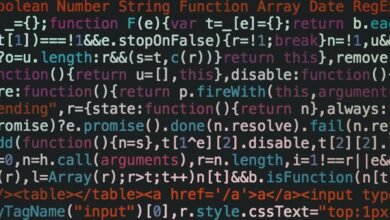Paris New Yorkbased Ml Ai Index

The ML AI Index presents a compelling examination of the burgeoning ecosystems in Paris and New York, where machine learning and artificial intelligence are rapidly evolving. These cities not only serve as epicenters of innovation but also highlight critical issues such as algorithmic bias and data privacy. As the index reveals key metrics and emerging trends, it raises pertinent questions about the sustainability of AI advancements and the ethical frameworks required to govern them. What implications might these dynamics have for the future of AI across various industries?
Overview of the ML AI Index
The ML AI Index serves as a pivotal resource for tracking the progress and impact of machine learning and artificial intelligence across various sectors. By providing comprehensive insights into technology adoption, the Index highlights the transformative potential of these technologies in fields such as healthcare, finance, and transportation.
The data analysis presented in the Index is derived from various sources, facilitating a nuanced understanding of trends in research funding and algorithm development.
Moreover, the ML AI Index underscores the importance of ethical considerations in the deployment of artificial intelligence. As industries increasingly collaborate on AI projects, the Index serves as a benchmark for assessing the implications of machine learning on society.
This collaboration fosters innovation while also prompting critical discussions about accountability and transparency.
Key Metrics and Data Sources
Across the landscape of machine learning and artificial intelligence, key metrics and data sources play a crucial role in shaping the ML AI Index. These elements not only inform stakeholders about the current state of AI advancements but also provide the foundation for strategic decision-making.
Understanding the right metrics and data sources is essential for evaluating progress and identifying areas for improvement.
Key metrics used in the ML AI Index include:
- Model Performance: Assessing accuracy, precision, and recall to evaluate model effectiveness.
- Research Publications: Tracking the volume and impact of AI-related academic papers as a measure of innovation.
- Funding and Investment Trends: Analyzing financial flows into AI startups and research initiatives to gauge market confidence.
Data sources for these metrics range from academic publications and industry reports to real-time market analytics.
Trends in AI and ML
Emerging patterns in artificial intelligence and machine learning reflect the dynamic nature of the technology landscape, driven by both innovation and market demand. A notable trend is the democratization of ML, which enables broader access to sophisticated tools, empowering individuals and organizations to leverage AI effectively.
This shift raises critical considerations regarding AI ethics, as the potential for algorithmic bias becomes increasingly pronounced, necessitating robust frameworks for fairness and accountability.
Data privacy remains a pivotal concern, particularly as automation trends reshape industries and workforce implications become more evident. The demand for model interpretability is rising, as stakeholders seek transparency in AI decision-making processes, fostering trust and encouraging responsible use of technology.
Innovation hubs, particularly in metropolitan areas like Paris and New York, are at the forefront of these advancements, fostering collaboration among startups, researchers, and enterprises.
As AI and ML continue to evolve, balancing innovation with ethical considerations will be essential. The convergence of these trends illustrates the importance of creating an environment that promotes responsible AI development while harnessing its transformative potential for societal benefit.
Impact on Industries
While many industries are experiencing transformative changes due to advancements in artificial intelligence and machine learning, the impact is particularly pronounced in sectors such as healthcare, finance, and manufacturing.
These industries are leveraging AI to enhance operational efficiencies, improve decision-making, and ultimately gain a competitive advantage.
However, this industry transformation also raises critical ethical considerations. As AI systems become more integrated into business processes, concerns regarding data privacy, bias, and accountability emerge.
The intersection of technology and ethics necessitates a framework that guides the responsible use of AI.
Moreover, workforce implications are significant. As automation becomes more prevalent, there is a pressing need for upskilling and reskilling initiatives to prepare employees for the changing landscape.
Organizations must address the potential displacement of jobs while embracing the opportunities that AI presents.
Key impacts of AI and ML on industries include:
- Enhanced operational efficiencies through automation
- Improved decision-making with data-driven insights
- The necessity for ethical frameworks to guide AI deployment
As industries navigate these changes, a balanced approach that considers both innovation and responsibility will be essential for sustainable growth.
Future Outlook and Predictions
The future landscape of industries influenced by artificial intelligence and machine learning is poised for unprecedented transformation, driven by rapid technological advancements and evolving consumer expectations. As organizations leverage AI, they will face innovation challenges that demand agile adaptation and strategic foresight.
| Factor | Implications | Considerations |
|---|---|---|
| Ethical Considerations | Need for transparency and fairness in AI algorithms | Building trust with consumers |
| Innovation Challenges | Balancing rapid tech adoption with sustainable practices | Ensuring long-term viability |
| Workforce Implications | Potential job displacement versus creation of new roles | Upskilling workers for new opportunities |
| Regulatory Impacts | Evolving frameworks to govern AI use | Navigating compliance in a global market |
In this dynamic environment, ethical considerations will increasingly shape the narrative, as stakeholders demand accountability and transparency. Furthermore, workforce implications will emerge, necessitating a proactive approach to retraining and reskilling. Regulatory impacts will also play a critical role, as governments seek to establish frameworks that promote innovation while safeguarding societal interests. Ultimately, the future of AI will hinge on a delicate balance of these elements, fostering an ecosystem that champions freedom and innovation.
Conclusion
In conclusion, the ML AI Index not only illuminates the dazzling brilliance of Paris and New York as epicenters of AI innovation but also serves as a clarion call for ethical vigilance in the face of rapid technological advancement. The potential for transformative impact across industries is staggering, promising a future where AI becomes synonymous with unparalleled efficiency and creativity. As the journey unfolds, the imperative for responsible practices will resonate louder than ever, ensuring a magnificent leap into a tech-empowered tomorrow.




